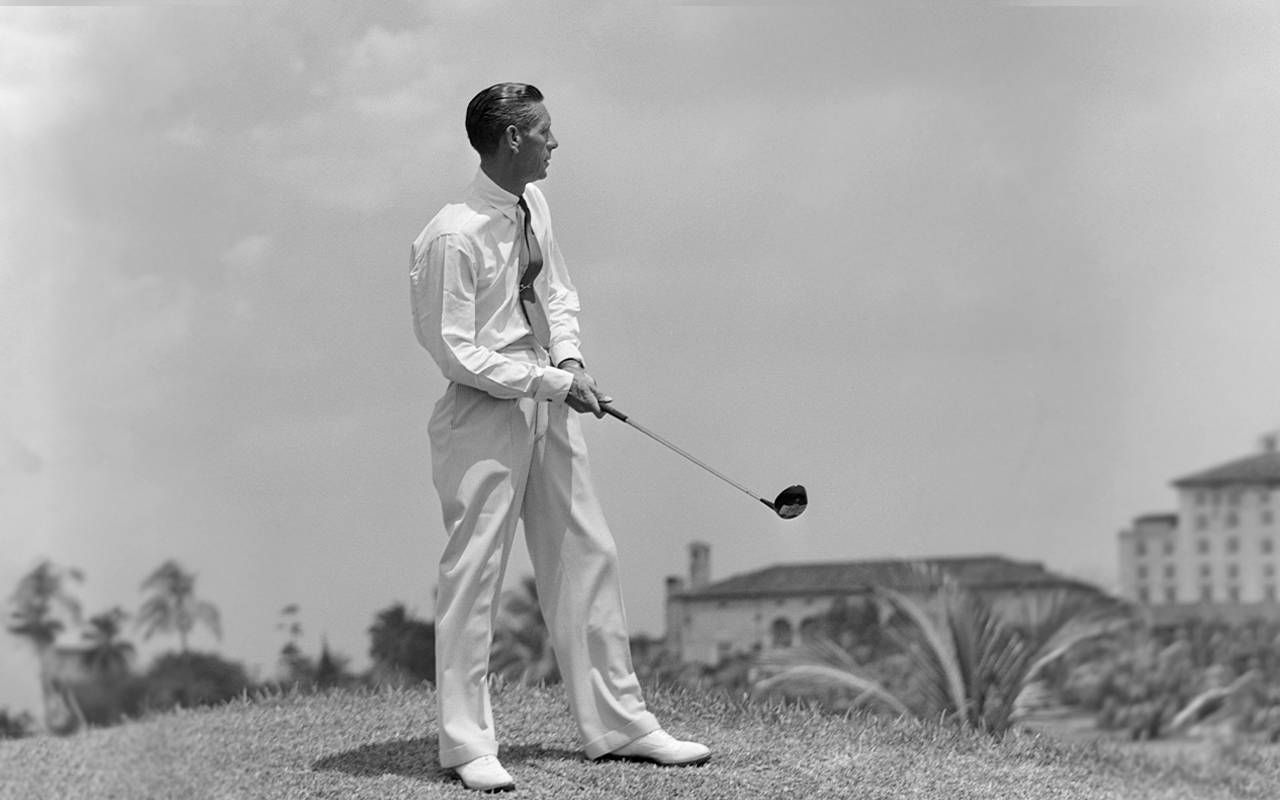My Father's Clubs
Taking up golf at 73, using my late father's archaic clubs, was an attempt to connect with the man I never knew
This year, at the age of 73, I decided to take up golf.
Though I had once dismissed the sport as a gross waste of time, it started to appeal to me when leisure starting occupying a larger part of my day — golf promised a bucolic time suck, a four or five hour reprieve from another day's dreadful news. In my seventh decade, I had also grown weary of being a loner. I wanted to see if golf could give me buddies: golf buddies.

I was uneasy and intimidated. No one told me that this late-in-life endeavor was going to be fun, at least for a good while. There would be hours to endure on the driving range accompanied by a byzantine learning curve. And this would be before I worked up the courage and temerity to venture out onto an actual course, where, I was told, I shouldn't even think about joining a foursome until I could shoot 110 for 18 holes. If you're among the uninitiated, that's a pretty bad score and not that much worse than the average American golfer can muster.
No one told me that this late-in-life endeavor was going to be fun, at least for a good while.
Undaunted, I found inspiration in an old set of clubs that had been abandoned in corners of damp basements or hallway closets for just about all of my life.
Over the objections of a patient friend who volunteered to teach me the fundamentals of a golf swing, and dismissing the eye rolls of the incredulous guys in the pro shop, I was determined to start my golf journey using these rusty and forlorn relics. They were branded with names of the Scotsmen Jock Hutchison and Tommy Armour, golf luminaries of the 1920s and 1930s, some etched with arcane and archaic words — like mashie and niblick (5 and 7 irons) — names derived from 19th century blacksmith's tools.
Maxwell Reiner's Clubs
Compared to today's computer calibrated titanium, graphite and carbon featherweight instruments, these clubs were crude, heavy and poorly balanced. I was warned that they couldn't possibly help my beginner's game survive, in fact, probably just the opposite. But I was unconvinced.
They belonged to my father, who died when I was two years old. What was it about those clubs? Nothing I possessed, including them, summoned memories of him, for I had none. Nor were they instruments of sentimentality or homage. I had photographs and a few keepsakes for that.
Did he hope to teach me someday? The clubs promised stories that could never be told.
I had no idea how often Maxwell Reiner, who died at age 34, played the game or whether he was any good at it or loved it. Not a man of means, he must have played on municipal courses somewhere near our small garden apartment in Queens, New York, but just where? What did he shoot?
Did he put the clubs down after I was born to spend more time with my mother to care for his new son? Did he want to resume the game as I grew older? Did he hope to teach me someday? The clubs promised stories that could never be told.
I think it must have been their physicality, the fact that they were swung by the man whose non-existence so affected my life. I suppose I yearned for some physical bond, strange as that sounds.
Searching for Connection Beyond Time
The hope, or fantasy, that just gripping the clubs in the same manner he did, swinging them, and striking the ball head on, feeling that inimitable and satisfying thwack that comes when club and ball meet in just the right way, would, in some way, carry me closer to him.
Someday, maybe, I'll pick those clubs back up and produce a few good, satisfying thwacks.
It was not meant to be. After too many disastrous buckets of balls — flubs, dinks and dribbles at the driving range — using those battered irons and impossibly small drivers, I've come to accept the judgement that the old, user-unfriendly clubs were just not a meant for a beginning senior duffer, someone like me who was still trying to learn his way to the first tee, as he was trudging through life's back nine.
Someday, maybe, I'll pick those clubs back up and produce a few good, satisfying thwacks. I hear there are even old club tournaments I could enter. But that won't be for a while, and maybe never. I'll take the pro's advice, keep my head down, my eyes on the ball, and try to remember the dozens of other dizzying pointers that lie in wait.
I'll still carry a mashie or a niblick with me, however, still searching for that connection, beyond mortality and time.

